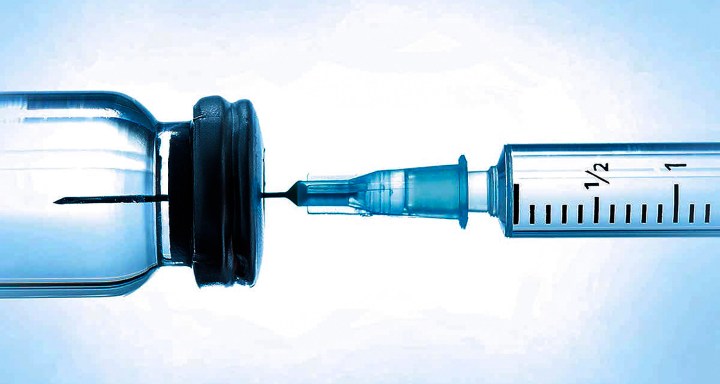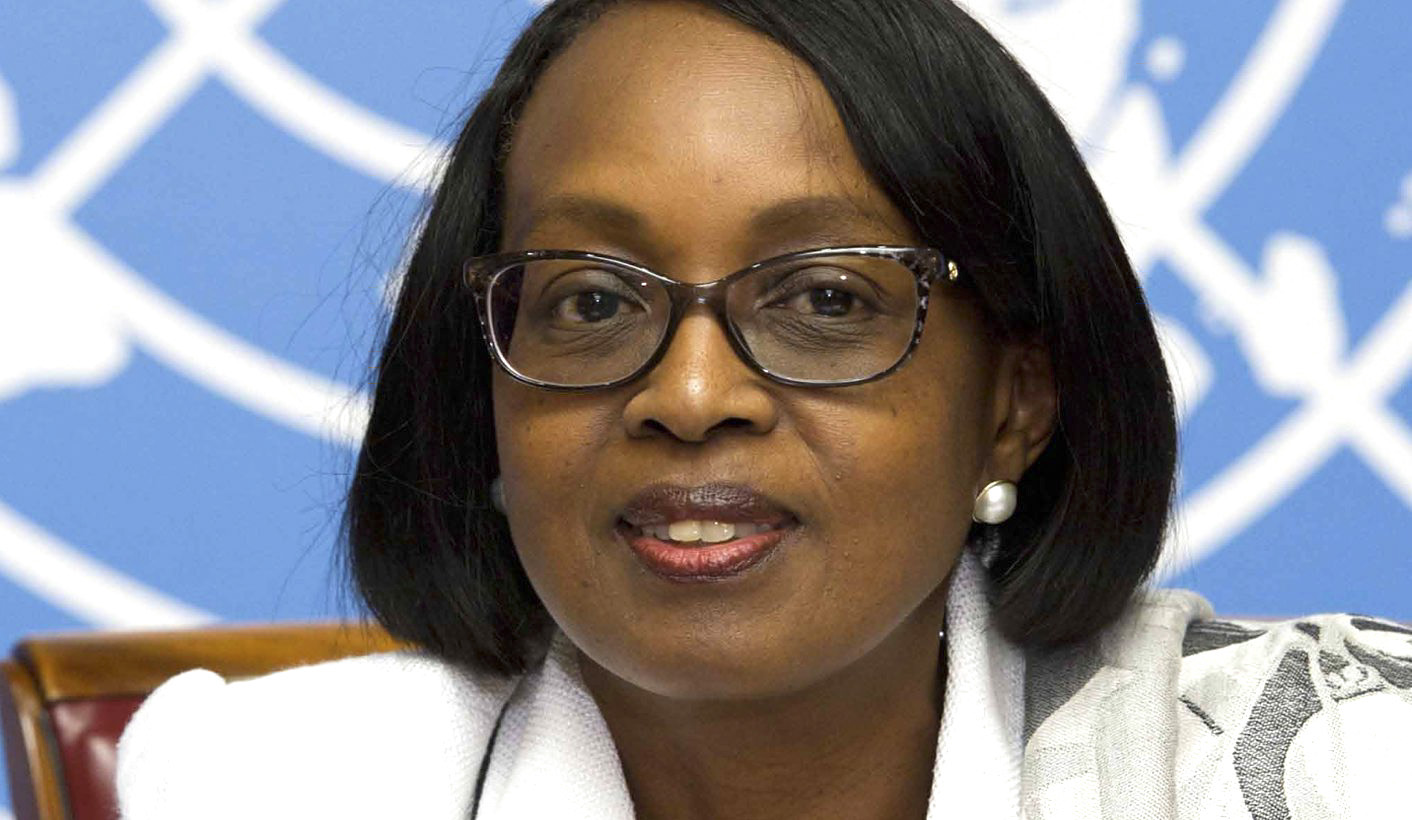MAVERICK CITIZEN OP-ED
SADC must do more to ensure equitable vaccine access in Southern Africa

It is crucial for the SADC to encourage all member states to develop, publish and promote national vaccine acquisition and roll-out plans and procurement strategies, detailing concrete measures to ensure non-discriminatory access to vaccines to all in the region.
“Although progress is being made, many African countries have barely moved beyond the starting line. Limited stocks and supply bottlenecks are putting Covid-19 vaccines out of reach of many people in this region. Fair access to vaccines must be a reality if we are to collectively make a dent on this pandemic.” – Dr Matshidiso Moeti, the World Health Organization (WHO) regional director for Africa
Less than 2% of the 690 million Covid-19 vaccine doses administered globally as at 8 April were in Africa, where most countries received vaccines from only some 11 weeks ago and in small quantities. Across Africa the pace of vaccine procurement and roll-out continues to be painfully slow, and in southern Africa the majority of countries are yet to vaccinate even 1% of their populations.
According to the Africa Centres for Disease Control and Prevention’s chief, Dr John Nkengasong, African countries have used up nearly 60% of their Covid-19 vaccines. This equates to 22.4 million vaccinations. A single dose has been delivered to 1.48% of the continent’s population and only 0.4% are fully covered.
African countries are receiving vaccines via three avenues:
- Covax, the global facility led by the WHO, Gavi, the Vaccine Alliance and the Coalition for Epidemic Preparedness Innovations;
- The African Union’s African Vaccine Acquisition Task Team; and
- Bilateral deals with vaccine manufacturers.
Most of the vaccine supply is through the Covax facility, but this does need to expand to include the other methods of acquisition in order to procure sufficient doses.
Last week, the International Commission of Jurists (ICJ) released a briefing paper, The Unvaccinated: Equality not Charity in Southern Africa, which sets out the obligations of every Southern Africa Development Community (SADC) member state, both through individual action and acting collectively through the SADC, to realise the rights of all people to health, to life and to an equal benefit from scientific progress, individually and through international cooperation and assistance.
To ensure equitable access to Covid-19 vaccines across all SADC countries the briefing paper makes several recommendations, including that:
- SADC member states should engage in regional cooperation;
- The SADC Secretariat should facilitate subregional Covid-19 vaccine procurement and distribution between the member states;
- The SADC Secretariat should provide clear guidance to the member states on their human rights obligations pertaining to vaccine access; and
- The SADC should engage in visible advocacy measures in support of the World Trade Organization Agreement on Trade-Related Aspects of Intellectual Property Rights waiver proposal.
The ICJ’s briefing paper stresses that SADC member states have human rights obligations both to their inhabitants (citizens and non-citizens alike) as well as to those of other states, including non-SADC member states. There is a need for vastly improved coordination and cooperation facilitated, in part, by SADC and this is not only politically and morally urgent, but required in terms of international human rights laws and standards to which the states of the region have committed themselves.
The ICJ was encouraged to observe that, subsequent to the publication of the report, SADC convened an extraordinary meeting of the ministers of health on 11 May, which came up with recommendations to mitigate the spread of the pandemic in the region.
At this meeting, the chairperson of the SADC Ministerial Committee on Health, Professor Doutor Armindo Tiago, stated that there is still a need to strengthen and reinforce joint plans to ensure the availability of Covid-19 vaccines. He urged member states to remain engaged in the fight to reduce the increase in cases and mortality caused by the pandemic. Tiago recounted challenges facing member states, such as receiving vaccines in very limited quantities, making it difficult to plan vaccination roll-out; and the short shelf-life of vaccines, which undermines proper and effective vaccination processes.
These are some of the positive recommendations made by SADC ministers at the meeting:
- Member states should vaccinate SADC “citizens” residing within their territories including, but not limited to diplomats, migrants, students, and those residing along the borders;
- The regulatory capacity of national regulatory agencies should be strengthened to allow for the conduct of vaccine assessment and the issuance of emergency use authorisations;
- Governments should proactively counter mistrust and vaccine hesitancy;
- Governments should share information on the types of vaccine and numbers of doses member states are receiving from suppliers to strengthen vaccine coverage monitoring in the region and for dissemination among all member states; and
- Governments should share lessons and experiences on the manufacture, distribution and management of vaccines, including information on potential investors willing to set up manufacturing plants in southern Africa.

Dr Matshidiso Moeti, the World Health Organization’s regional director for Africa. (Photo: Wikipedia)
The WHO’s Dr Matshidiso Moeti called on member states attending the meeting to track Covid-19 variants. As Covid-19 vaccination campaigns increase globally, there are more opportunities for the virus to mutate as it tries to escape increasing levels of immunity.
Tracking variants is expensive and complicated. When this work started in 2020, only South Africa and the Democratic Republic of Congo were able to do genomic sequencing, but now six SADC countries are said to be able to do so. As part of the genomic sequencing, laboratories track mutations by sequencing samples and thereafter sending them on to GISAID.
The GISAID initiative promotes the rapid sharing of data. This includes genetic sequences, clinical and epidemiological data, and geographical and other information to help researchers understand how viruses evolve and spread during epidemics and pandemics. Tracking virus strains helps the global health community modify vaccines and helps governments cater lockdowns to specific localities, rather than broad, country-level measures.
The WHO urged member states to join it and its partners to petition the world’s largest economies to share their doses as soon as possible, and to work towards vaccine equity by ensuring the most at-risk people in all countries are protected first. It also acknowledged the opportunity to leverage the momentum around vaccine manufacturing and called on member states to work with it to strengthen regulatory systems on the continent, to engage the private sector, and to build the expertise needed to produce vaccines and other products locally.
The WHO encouraged self-reliance to ensure that Africa, including the SADC, is no longer at the back of the queue for essential health treatments. It stressed that this pandemic is “a once in a 100-year event”, and precisely the kind of occasion when exceptions should be made to save lives and safeguard global health security.
Regional and international treaty obligations
The ICJ’s briefing paper underscores that the SADC Treaty lists combating deadly communicable diseases, like Covid-19, as one of its objectives.
The SADC Health Protocol requires southern African governments to cooperate in addressing health problems and challenges facing them for “effective regional collaboration and mutual support” and to “coordinate regional efforts on epidemic preparedness, mapping, prevention, control and where possible the eradication of communicable and non-communicable diseases”.
Article 29 of the SADC Health Protocol addressing pharmaceuticals provides that SADC states must “cooperate and assist one another” in the “production, procurement and distribution of affordable essential drugs”. This obligation necessarily applies to the production, production and distribution of affordable Covid-19 vaccines and therapeutics.
The ICJ is concerned that SADC is limiting access to vaccines to SADC “citizens”. This is contrary to international human rights law, including under the International Covenant on Economic, Social and Cultural Rights and prescription from UN and public health experts that Covid-19 vaccine access and treatment must be provided in a non-discriminatory manner.
All inhabitants of SADC countries must have equitable access to vaccines. Ensuring vaccine access for citizens, migrants, refugees, and stateless persons alike is necessary to protect the right to health of all persons, as the virus itself does not discriminate among who it chooses as its hosts.
It is interesting to note that there is no data available from the meeting on whether member states are seeking to share information on the costs of vaccines from the various suppliers. There also appear to be no initiatives led by the SADC Secretariat to engage with vaccine manufacturers to procure vaccines at reduced prices for equitable distribution. This is despite clear mandates in terms of the SADC Treaty and SADC Health Protocol to engage in precisely such collaborations to combat pandemics and realise the right to health.
Of particular concern is the directive from the meeting to the SADC Secretariat to mobilise resources to support ongoing research on Covid-19 African traditional medicine. This concern arises from our collective memory of the controversial traditional medicines that were used to treat HIV/Aids. Madagascar’s President Andry Rajoelina in 2020 claimed without evidence that the herb Artemisia annua was in use in his country as a cure for Covid-19. The herbal treatment was subsequently ordered by Tanzania, Liberia, and the Republic of Congo.
The WHO has cautioned against the use of untested treatments to combat Covid-19. Madagascar has, however, recently joined the WHO-led Covax programme to secure vaccines for the Malagasy population. In contrast, Tanzania, Burundi and Eritrea have refused to join the Covax programme. This status quo remains even after Tanzanian President John Magufuli is said to have died from Covid-19. Earlier this year the king of Eswatini was touting an antiviral drug from Taiwan which he claims aided his recovery from Covid-19. Fortunately, and despite this, Eswatini is currently receiving vaccines from Covax.
It is laudable that the SADC has convened health ministers to discuss coordination and solidarity. SADC has, however, not gone far enough with its coordination, particularly with regard to procurement and distribution of vaccines. The SADC and the AU need to continue to act on advice from the WHO.
The SADC Secretariat should provide clear guidance to the member states on their human rights obligations pertaining to vaccine access. The SADC should take effective action to address the failure of member states to act according to their obligations under international law, including under regional agreements.
Access to justice and, in particular, access to courts must remain available. It is disappointing that in Zimbabwe the efforts of local civil society organisations have been drastically limited due to a practice directive allowing courts to only deal with urgent matters as a result of the Covid-19 related restrictions.
The Zimbabwe Human Rights Association (ZimRights) filed a case, on an urgent basis, with the Zimbabwe High Court in February over the government’s failure to uphold the right to health and life. The case was dismissed for lacking urgency and ZimRights was advised to follow the normal court process at a later time. The ICJ and ZimRights have since requested that the African Commission on Human and People’s Rights intervene in the matter.
It is crucial for the SADC to encourage all member states to develop, publish and promote national vaccine acquisition and roll-out plans and procurement strategies, detailing concrete measures to ensure non-discriminatory access to vaccines to all people. Surprisingly, few have taken even this rudimentary step which would allow their inhabitants to assess whether measures taken by states comply with public health best practices and human rights laws and standards. We need to keep emphasising to the SADC that no one is safe until everyone is safe. DM/MC
Kajaal Ramjathan-Keogh is director of the Africa Regional Programme at the International Commission of Jurists.


















 Become an Insider
Become an Insider